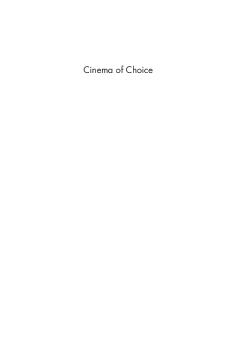
Additional Information
Book Details
Abstract
Standard Hollywood narrative movies prescribe linear narratives that cue the viewer to expect predictable outcomes and adopt a closed state of mind. There are, however, a small number of movies that, through the presentation of alternate narrative paths, open the mind to thoughts of choice and possibility. Through the study of several key movies for which this concept is central, such as Sliding Doors, Run Lola Run, Inglourious Basterds, and Rashomon, Nitzan Ben Shaul examines the causes and implications of optional thinking and how these movies allow for more open and creative possibilities. This book examines the methods by which standard narrative movies close down thinking processes and deliver easy pleasures to the viewer whilst demonstrating that this is not the only possibility and that optional thinking can be both stimulating and rewarding.
Nitzan Ben Shaul is Professor of Film and Television Studies and former head of the Film and Television Department at Tel Aviv University. He received his Ph.D. from the Cinema Studies Department at New York University. He has authored several books including, Film: The Key Concepts (Berg, 2007), and Hyper-narrative Interactive Cinema: Problems and Solutions (Rodopi, 2008).
“…a welcome contribution to the scholarship on film narrative. Ben Shaul provides thought-provoking commentary on how movies construct their narratives and the process by which audiences cognitively interact with them. Ben Shaul’s book should appeal to anyone interested in film narratology or cognitive studies of film, and is particularly relevant to those interested in experimental narration and interactive storytelling.” · Projections. The Journal for Movies and Mind
“In general, this book should be of interest to scholars in a number of fields and could be a useful didactic instrument for students attending courses on Communication Studies. The discussion may also be of interest to film audiences in general, as it offers a new hermeneutic approach to the understanding of films we see daily on TV or at the cinema.” · Journal of Contemporary European Studies
